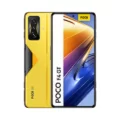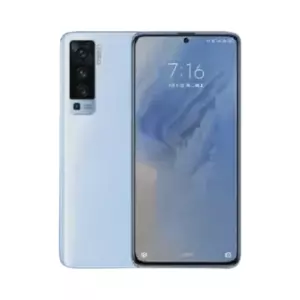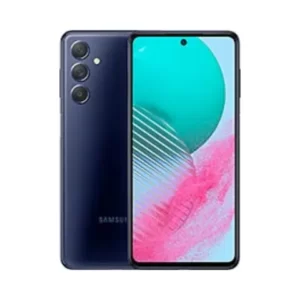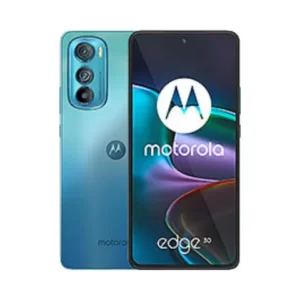On this page, you will find the full specs, benchmarks, battery life, camera specs, strengths, and weaknesses of the Poco F4 GT. Newgadget will give you every detail you need and help you decide which phone to choose based on your budget needs.
Specs Highlights
- 6.67 inch AMOLED display with 120 Hz refresh rate
- Qualcomm Snapdragon 8 Gen 1 (4 nm).
- 8/12 GB RAM + 128/256 GB storage
- 64 MP + 8 MP + 2 MP Rear Camera 20 MP Front Camera
- 4700 mAh battery and 120W fast charging.
Poco F4 GT Specifications
- Poco F4 GT 162.5 x 76.7 x 8.5 mm and weighs 210 grams. It was launched in Stealth Black, Knight Silver, Cyber Yellow.
- 6.67 -inch touchscreen display with a resolution of 1080 x 2400 pixels per inch (ppi) with a pixel density of 395 pixels and a 20:9 Aspect Ratio, AMOLED, 120Hz Refresh Rate, 800 nits (pix).
- The Phone is powered by Qualcomm Snapdragon 8 Gen 1 (4nm), a great octa-core processor with Performance Core 3.00 GHz peak CPU clock speed.
- This phone’s triple camera setup features a 64-megapixel primary camera with an f/1.7 aperture; a 8 MP-megapixel camera with an f/2.2 aperture and a 2-megapixel camera with an f / 2.4 aperture. For selfies, it has a single front camera setup with a 20-megapixel sensor with an f/2.4 aperture.
- 8/12GB RAM is offered with 128/256GB storage
- Poco F4 GT packs a 4700 mAh battery that supports 120W fast charging. It takes around 19 minutes for the device to fully charge.
- Poco F4 GT includes Wi-Fi 6E (802.11 a/b/g/n/ac/ax), GPS, Bluetooth v5.2, NFC, USB Type-C, 5G
Buy For Xiaomi Poco F4 GT
Buy For
- 64 MP Main Camera
- Snapdragon 8 Gen 1
- 128/256GB Internal Storage
- LPDDR5 (8/12GB RAM)
- 4700 mAh Li-Po | Fast Charging 120W.
Full specification
Basic Info
| Device type | Flagship |
| Brand | Xiaomi |
| Model | 21121210G |
| Announced | April, 2022 |
| Released | April, 2022 |
| Status | Available |
Design
| Type Design Type called form factor refers to a mobile phone's size, shape, and style as well as the layout and position of major components of phone. There are three major form factors seen in mobile phones => bar phones, folding phones and sliding phones. | Bar |
| Height | 162.5 mm (6.4 inches) |
| Width | 76.7 mm (3.02 inches) |
| Thickness | 8.5 mm (0.33 inches) |
| Weight | 210 grams |
| Front material | Glass |
| Frame material | Aluminum |
| Back material | Glass |
| Colors | Stealth Black, Knight Silver, Cyber Yellow |
| Fingerprint position | In-home button |
| Protection | Front (Gorilla Glass Victus) |
| Waterproof | No |
Display
| Display type Display Technology => A number of display technologies and types used in mobile phones => TFT (Thin Film Transistor), IPS (In-Place Switching), OLED (Organic Light Emitting Diode), AMOLED (Active-Matrix Organic Light-Emitting Diode), Super AMOLED (an even advanced version of AMOLED), Resistive Touchscreen (Resistive touchscreens contain two layer of conductive material with a very small gap between them which acts as a resistance), Capacitive Touchsceen (Capacitive touchscreen technology consists of a layer of glass coated with a transparent conductor) | AMOLED |
| Display Size | 6.67 inches |
| Resolution | 1080 x 2400 pixels |
| Pixel density Pixel Density (PPI) is refers to the concentration of pixels on a particular display, measured in pixels per inch (ppi). Pixel density is calculated by dividing the diagonal pixel resolution of a display by its diagonal size, higher pixel density better display quality. | 395 ppi |
| Aspect ratio | 20:9 |
| Refresh rate | 120 Hz |
| Screen to Body | 86.2 % |
| Brightness | 800 nits (peak) |
| Colors | 1B colors |
| HDR support | Yes, HDR10+ |
| Contrast ratio | 5,000,000:1 |
| Touch screen | Yes, Capacitive multi-touch, Capacitive Touch Screen |
| Display protection Display Protection => Gorilla Glass is a special alkali-aluminosilicate glass shield with exceptional damage resistance that helps protect mobile displays from scratches, drops, and bumps of everyday use, It is always better to go for a smartphone with Gorilla Glass for that added protection and peace of mind. | Gorilla Glass Victus |
| Display features | DCI-P3, Always-on display, DC Dimming |
Performance
| Chipset Chipset is a group of integrated circuits designed to perform one or a more dedicated functions, often with real time computing constraints, Popular smartphones are equipped with more advanced embedded chipsets that can do many different tasks depending on their programming. | Qualcomm Snapdragon 8 Gen 1 |
| CPU CPU (Central Processing Unit) mostly known as processors, CPU processes instructions in order to carry out certain functions that make your device operate properly. Processors are often described as the brain of computers, smartphones and tablets, Smartphones and tablets rely on processors to carry out their every task, Processors are an incredibly important factor in selecting any type of computing device, including your smartphone. |
1x3.00 GHz Cortex-X2 3x2.50 GHz Cortex-A710 4x1.80 GHz Cortex-A510 |
| Max. clock | 3.00 GHz |
| Base clock | 1.80 GHz |
| CPU cores | Octa Core, 8 (1+3+4) |
| Process | 4 nm |
| Architecture | 64 bit |
| GPU GPU (Graphics Processing Unit) is a single-chip processor designed to rapidly manipulate and alter memory to accelerate the creation of images in a frame buffer intended for output to a display, This includes things such as lighting effects, object transformations, and 3D motion. | Adreno 730 |
| Frequency | 818 MHz |
| Geekbench |
Geekbench 5 |
| Single-Core | 1255 |
| Multi-Core | 3653 |
| AnTuTu |
AnTuTu 9 |
| CPU score | 215073 |
| GPU score | 419621 |
| Memory score | 157625 |
| UX score | 162419 |
| Total |
954738 |
Rear Camera
| Camera type | Triple Camera |
| Main camera | 64 megapixel |
| Image resolution | 9248 x 6936 Pixels |
| Sensor | Exmor-RS CMOS |
| Angle of widest lens | 120° |
| Zoom | Digital |
| 1080 video | Yes, Up to @ 60fps |
| 4K video | Yes, Up to @ 60fps |
| 8K video | No |
| Slow Motion | Yes, Up to @ 960fps (720p) |
| Flash Flash Light => There is commonly two types of flash lights are used in camera mobile phones, LED Flash (LED flash offers lower power consumption with drive circuitry that takes up very little room, LEDs can be strobed faster than any other light source), Xenon Flash (xenon flash produces an extremely intense full-spectrum white light for a very short duration) | Dual LED |
| Stabilization | Digital |
| Autofocus | Phase autofocus |
| No. Camera | 3 (64 MP + 8 MP + 2 MP) |
| Wide-Angle |
64 MP Aperture: f/1.7 Focal length: 26 mm Pixel size: 0.8µm Sensor: 1/1.73 inches Sensor: Sony IMX686 (Exmor-RS CMOS) |
| Ultra-wide |
8 MP Aperture: f/2.2 Pixel size: 1.12µm Sensor: 1/4.0 inches Sensor: Omnivision OV8856 |
| Macro lens |
2 MP Aperture: f/2.4 |
| Camera features | Bokeh mode, Pro mode, HDR, panorama |
Front Camera
| Camera type | Single Camera |
| Camera | 20 megapixel (wide) |
| Aperture | f/2.4 |
| Pixel size | 0.8µm |
| Sensor | Exmor-RS CMOS |
| Sensor size | 1/2.0 inches |
| Video recording | Up to @ 60fps, (1080p) |
| Camera features | HDR |
Memory
| RAM type | LPDDR5 |
| RAM size | 8/12GB |
| Frequency | 3200 MHz |
| Virtual RAM | No |
| Channels | 2 |
Storage
| Storage type | UFS 3.1 |
| Storage capacity | 16 GB |
| External storage | No |
Battery
| Battery type Battery Type => Cell phones run on various kinds of batteries depending on the manufacturer, phone size or shape and features. There are basically four types of cell phone batteries => Lithium Polymer, Lithium Ion, Nickel Metal Hydride and Nickel Cadmium. | Li-Ion (Lithium Ion) |
| Capacity Battery Capacity is a measure (typically in Amp-hr) of the charge stored by the battery, and is determined by the mass of active material contained in the battery. The battery capacity represents the maximum amount of energy that can be extracted from the battery under certain conditions. | 4700 mAh |
| Placement | Non-Removable |
| Fast charging | Yes, 120W |
| Charging time | 100% in 19 min (advertised) |
| Wireless charging Wireless Charging (Inductive Charging) uses an electromagnetic field to transfer energy between two objects. This is usually done with a charging station. Energy is sent through an inductive coupling to an electrical device, which can then use that energy to charge batteries or run the device. | No |
| Reverse charging | No |
| Test |
Battery life tests |
| Web browser | 9h: 12min |
| Video playback | 11h: 35min |
| Gaming | 4h: 15min |
| Standby | 75h: 00min |
Network
| Number of SIM | 2 |
| SIM Type | Nano |
| Multi SIM | Standby |
| Hybrid slot | No |
| eSIM Support | No |
| GPRS GPRS (General Packet Radio Service) is a packet oriented mobile data service on the 2G and 3G cellular communication system's global system for mobile communications (GSM), Generally, GPRS is used for the purpose of wireless data transfer, such as sharing pictures and videos or browsing the Internet via a mobile phone connection. | Yes |
| EDGE | Yes |
| VoLTE | Yes (LTE Cat-20) |
| 2G network | GSM 850, 900, 1800, 1900 MHz |
| 3G network | HSDPA 850, 900, 1700(AWS), 1900, 2100 |
| 4G network | 1-5, 7, 8, 12, 17, 18, 19, 20, 25, 26, 28, 32, 34, 38, 39, 40-42, 66 |
| 5G network | Yes |
Connectivity
| Wi-fi Wi-Fi is a popular wireless networking technology using radio waves to provide high-speed network connections that allows devices to communicate without cords or cables, Wi-Fi is increasingly becoming the preferred mode of internet connectivity all over the world. | Wi-Fi 6E (802.11 a/b/g/n/ac/ax) |
| Wi-fi Hotspot | Yes |
| Wi-Fi features | Dual Band, Wi-Fi Direct, Wi-Fi Display |
| Bluetooth Bluetooth is a wireless communications technology for exchanging data between mobile phones, headsets, computers and other network devices over short distances without wires, Bluetooth technology was primarily designed to support simple wireless networking of personal consumer devices. | Yes |
| Bluetooth version | 5.2 |
| Bluetooth features | LE, HID, A2DP |
| USB Type | USB Type-C |
| USB version | 2 |
| USB features | Mass storage device, USB charging |
| GPS GPS The Global Positioning System is a satellite-based radio navigation system, GPS permits users to determine their position, velocity and the time 24 hours a day, in all weather, anywhere in the world, In order to locate your position, your device or GPS receiver must have a clear view of the sky. | Yes, A-GPS, GLONASS, GALILEO, BDS, BeiDou |
| NFC NFC (Near field communication) is a set of standards for smartphones and similar devices to establish peer-to-peer radio communications with each other by touching them together or bringing them into proximity, usually no more than a few inches. | Depends on market/region |
| Infrared | Yes |
Media
| FM radio | No |
| Loudspeaker | Yes, with stereo speakers |
| Dolby atmos | Yes |
| Headphone Jack | No |
Software
| OS OS => Every computer system run on a base software called Operating System (OS). Operating System controls all basic operations of the computer (such as smartphone, PDAs, tablet computers and other handheld devices). The Operating System allows the user to install and run third party applications (apps), apps are used to add new functionality to the device. | Android 12 |
| User interface UI or user interface of a device is the look and feel of the on-screen menu system. How it works, its color scheme, how it responds to button presses, all of these things are part of the user interface. | MIUI 13 |
| OS size | 33 GB |
Sensor
| Fingerprint sensor | Yes |
| Fingerprint position | In-home button |
| Face unlock | Yes |
| Other sensors | Light sensor, Proximity sensor, Accelerometer, Compass, Gyroscope. |
Benchmark
User Reviews
0.0 out of 5
★★★★★
0
★★★★★
0
★★★★★
0
★★★★★
0
★★★★★
0
Write a review
Be the first to review “Poco F4 GT” Cancel reply
Expert Score
7.5
Design
8
Camera
7
Battery
7.5
Performance
8
Over all price
7
PROS:
- AMOLED display
- 64 MP Rear camera
- 120w fast charger.
CONS:
- Not for low-light photography.
- Reverse charging is not supported.
- No SD card support.
Latest Comparisons














There are no reviews yet.